Cleaning the house at the end of year
- Get link
- X
- Other Apps
The year 2020 ended with our usual winter cleaning. Yes, we somehow don’t do Spring cleaning. Every end of year, most of Japanese people do cleaning their houses, throw away rubbish, scrub floor and wipe windows, clear up refrigerator and put all the nice things for the New Year feast.
The reason why people clean up their houses at the end of year is probably because of the weather, also probably because of an ancient custom.
The weather in December is normally good, the air is quite dry. It is one of the best time to do all the washing and cleaning while the weather is good. It is easy to dust, scrub and wipe all the dirt which has been left untouched quite a while. In 2020, my father and I were in charge of wiping the windows – it was quite nice to see the clean windows shining under the sun, after wiping and scrubbing them with rag, sometimes with old newspapers soaked in water.
The ancient custom side possibly relates to Shinto. This is how I learned during my childhood, so the detail may not be accurate.
The religion values cleanliness because Shinto gods love clean spaces. Each year, god of year (Toshi-gami sama) is believed to visit household for blessing. This is why we do end of year cleaning to welcome the Toshi-gami sama
Shinto believe that there are gods in all the things, whether it is a tree or rock or mountain or the sea. There are gods in your house, too – god of fire protecting you from fire incidents, gods protecting you from the lack of water, gods protecting you from harms coming into your house from the entrance. To receive the protections from the gods of small things, we try our best to keep the space clean – your kitchen, bathroom, entrance, etc. etc.
My parents likes following tradition of putting up the decoration after cleaning the house. The decoration is called “ Wakazari”, which you hang it where gods believed to preside – places like toilet, bathroom or sink (where gods of water reside ) or kitchen ( where gods of fire reside) They are made of straw, with thin paper stream called “Mizuhiki” attached. It is believed to make the place sacred.
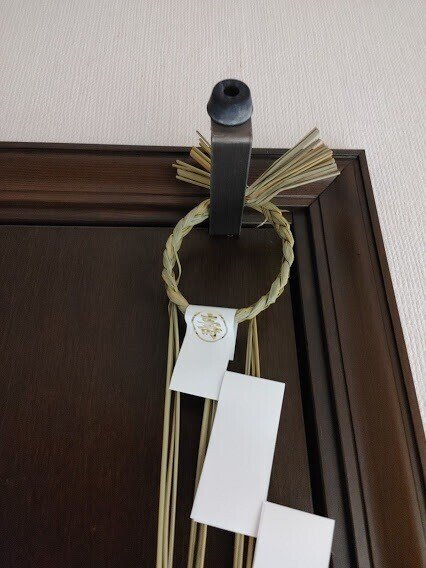
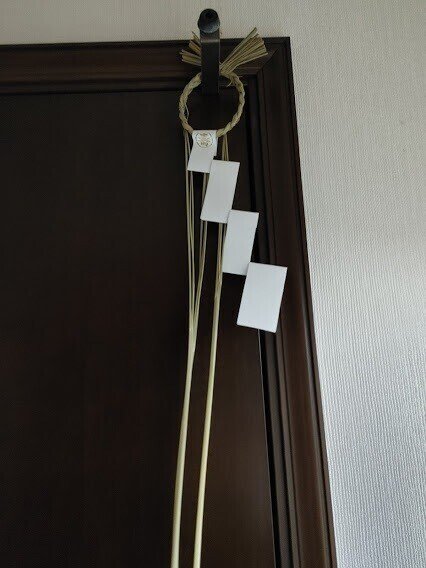
As usual, Wakazaris were hanged at bathroom doors and around kitchen tap, and by cookers. The front door is more special, we put an ornate wreath which is meant to welcome the god of year, which is believed to entre the house from the front door.
As a child, I loved this idea of gods in all the small things. Imagining the god of year in beautiful robe coming through the front door in elegant style was quite exciting. Long time ago when we spent our New Year’s day at our grandparent’s house, I loved cleaning the entrance, scrubbing stone floor, thinking that the god or goddess will pass through here.
We brought in the year 2021, thinking that the year will be much better than 2020. As most of Asian countries, we welcomed the year of ox. We decorated our entrance with little ox ornament.
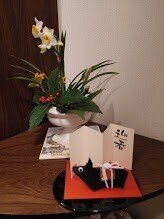
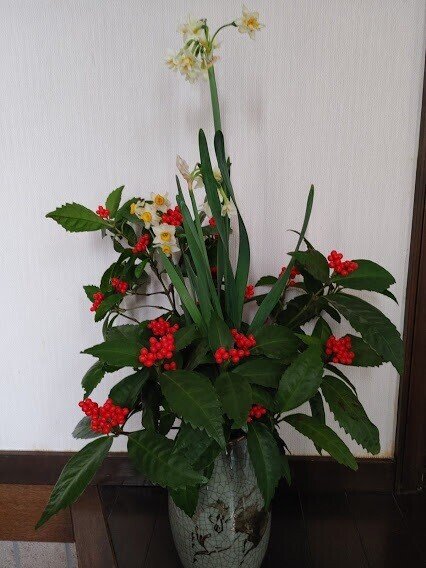
We had a late breakfast, which is our usual New Year feast like Zoni (Clear chicken broth with rice dumpling and vegetables).
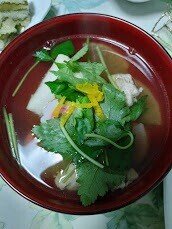
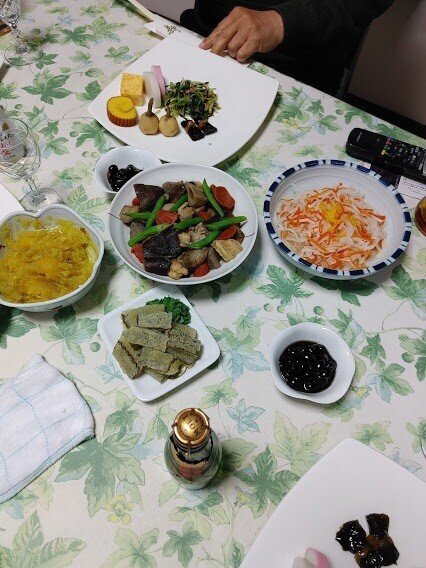
I was truly grateful and felt lucky that my parents were fit and well. They are in their late 70’s and 80’s, and although they go out often, none of them caught COVID virus.
Later in the day, I texted my sister for a New Year greetings. She and her family were all well, enjoyed the end of year on-line concert by a Japanese pop singers. The young nieces and my brother-in-law were doing well, coping with working from home and taking online lectures by a university. This is our new normal in 2020 – 2021. Wonder how the world would turn out to be, when all the COVID-19 is over.


Comments
Post a Comment